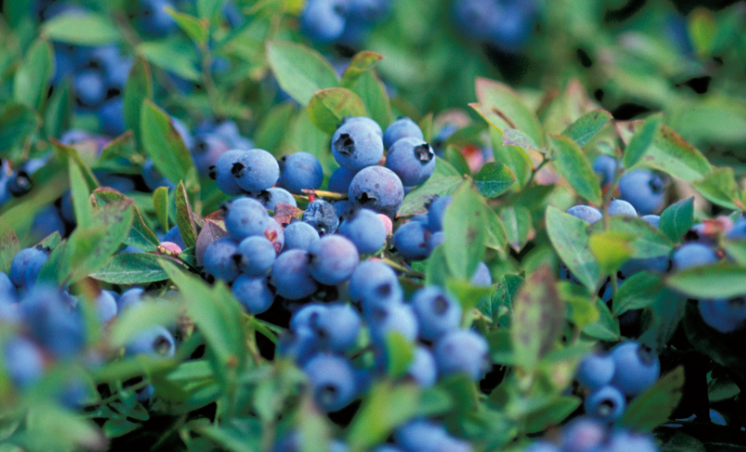Why Adversity Leads to Success
A Unique Nutritional Concept Can Improve Health – Will We Listen?

It’s been the principle of sticktoitveness since Henry Ford created his first car (and his first flop): the difficult road to success – in business, in the arts, in athletics – ends in gold. The bigger the hardship, the more intense the success. In other words, in most walks of life, what doesn’t kill you makes you stronger.
Can something that applies to football players and CEOs alike also apply to the world of nutrition? The latest research says yes, and it brings to light an exciting new concept in health and disease prevention.
The more we study the nutritional components of food, the more we understand why certain foods are good for us. Some antioxidant-rich foods can preserve healthy organ functioning, prevent disease of aging, and even reverse age-related illness – powerful stuff for something readily available. Part of the reason relies on the principle of adversity – that their challenges have made them stronger and healthier. If we seek out foods that have endured struggles to survive in a difficult environment, we’re taking in powerful nutrition that in turn makes US stronger.
Stressed to Be The Be the Best
Member of The Bar Harbor Group Don Ingram, Ph.D. of the Nutritional Neuroscience and Aging Laboratory and the Pennington Biomedical Research Center at Louisiana State University, recently provided a case in point in an interview on the podcast To Your Good Health with Dr. David Friedman. Dr. Ingram explained why the huge nutritional capacity of certain foods like wild blueberries is the result of their tough nature.
 Components in foods like wild blueberries act to protect the fruit against stressful events, said Ingram. Because the berries are grown naturally in demanding geographical areas in Maine and parts of Canada, they endure cold, harsh winters, temperature shifts and intense sun (for which they have developed their own UV protection in their deeply colored skin). They grow in rugged terrain and challenging soil, and they grow close to the ground where they are susceptible to insects, fungi and other pests. Wild blueberries are the product of a dangerous world, and they have evolved to thrive in the face of the harshest stressors. That’s exactly what makes them incredibly beneficial to us.
Components in foods like wild blueberries act to protect the fruit against stressful events, said Ingram. Because the berries are grown naturally in demanding geographical areas in Maine and parts of Canada, they endure cold, harsh winters, temperature shifts and intense sun (for which they have developed their own UV protection in their deeply colored skin). They grow in rugged terrain and challenging soil, and they grow close to the ground where they are susceptible to insects, fungi and other pests. Wild blueberries are the product of a dangerous world, and they have evolved to thrive in the face of the harshest stressors. That’s exactly what makes them incredibly beneficial to us.
Why Some Foods are “Lazy”
Because wild blueberries have grown to withstand these environmental stressors, they have naturally evolved to have powerful defenses. When we put these foods in our bodies, we are getting the benefits of those defenses. According to Dr. Ingram, foods that are grown mainly as cultivated fruits such as the cultivated blueberry, or oranges, for instance, while still good for us, could be argued to be a bit “lazy” Dr. Ingram explains. These fruits have lost their protective abilities because through cultivation they have not needed to be tough – instead, we provide them with protection. As a result, truly powerful compounds, he surmises, have dropped from their nutritional profile.
Wild blueberries act on inflammation in the body, and inflammation is at the root of aging and many challenging diseases. Diets with blueberries, studies consistently show, calm destructive oxidative stress and reduce the inflammation in the cells of the brain, the heart, and other organs. That’s why in lab tests, wild blueberries are found to be advantageous for health in important ways such as fighting cancer, diabetes, heart disease, memory loss and Alzheimer’s, and other aging-related illnesses.
The equation is groundbreaking. But why don’t we treat this phenomenon as the breakthrough it is? While the benefits of consuming foods high in nutrition is generally accepted, we’ve grown used to the evidence – both anecdotal and scientific – in support of healthy food. The advice can ring hollow because it seems so similar to a grandmother urging us to eat our vegetables and clear our plate. According to Dr. Ingram, food just doesn’t prompt the same level of excitement that cure-all medications and new scientific breakthroughs do. But it should.
The Whole Food Research Challenge
“This is a whole area of research that we need to be involved in,” Dr. Ingram told David Friedman of whole food research. “Funding agencies are remiss in funding this kind of research because it just doesn’t seem that sexy.” As a result, he said, we have yet to confirm many of the promising animal studies that would enable us to say definitively that wild blueberries, for example, can provide major benefits for the most pressing health hurdles for our culture.
The results of those studies could affect how we treat diseases related to oxidative stress as well as important areas such as insulin resistance, cognitive deficits, and overweight kids. Said Ingram, “Support for research that shows in a well-controlled trial that these types of foods like berries, particularly blueberries, can have these types of effects would go a long way to convincing the public that they should be eating these types of foods.”
Until we can figure out how to put the sexy into nutritional research, knowing that common Clark Kent foods can be the Supermen of health should be reason enough to make eating them every day a priority. Start applying the principle that what doesn’t kill you can make you stronger when it comes to the foods on your own plate. The street smarts inherent in your food has an excellent chance of translating into your good health.

Listen to the interview with Dr. Don Ingram on the To Your Good Health with Dr. David Friedman podcast.

